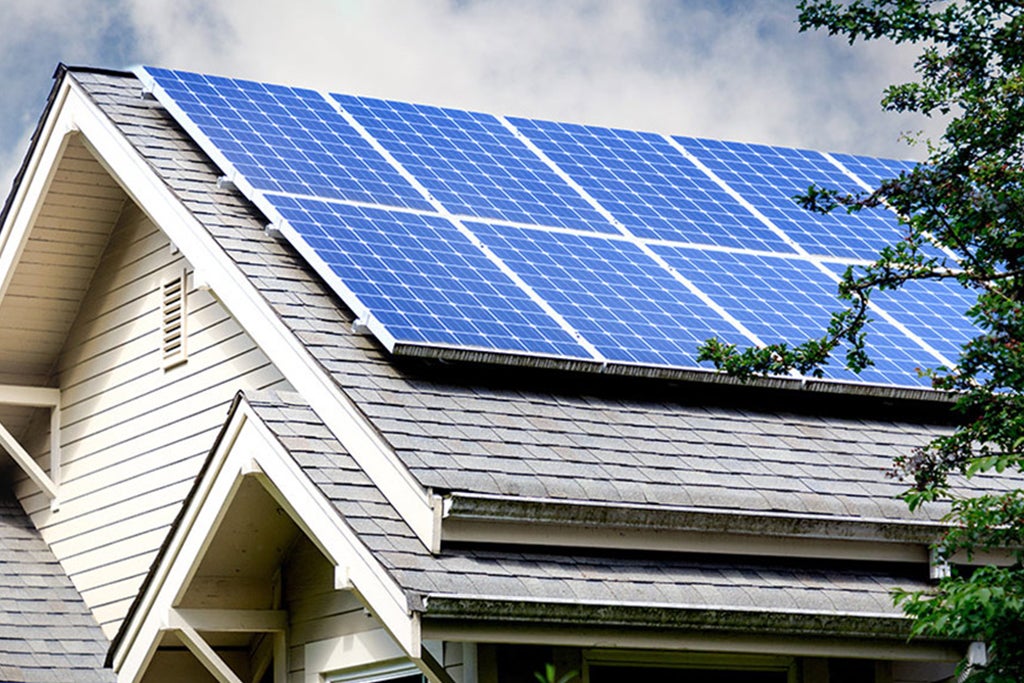
Image Source: Google
Solar power is a clean, renewable energy source that is becoming increasingly popular for residential use. Harnessing the power of the sun can not only help you reduce your carbon footprint but also save money on your electricity bills in the long run. If you are considering installing a home solar system but don't know where to start, this beginner's guide is here to help you understand the basics and make an informed decision.
Understanding House Solar Systems
How Do Solar Panels Work?
- Solar panels are made up of photovoltaic cells that convert sunlight into electricity through the photovoltaic effect.
- When sunlight hits the solar panels, the cells generate direct current (DC) electricity.
- An inverter then converts the DC electricity into alternating current (AC) electricity that can be used to power your home.
Types of Solar Systems
There are two main types of solar systems that you can install in your home:
- Grid-Tied Systems: These systems are connected to the utility grid and allow you to sell excess electricity back to the grid.
- Off-Grid Systems: These systems are not connected to the utility grid and require battery storage to provide power when the sun is not shining.
Assessing Your Home's Solar Potential
Location and Sun Exposure
- Assess the amount of sunlight your roof receives throughout the day to determine if it is suitable for solar panel installation.
- Shading from trees, buildings, or other obstructions can reduce the efficiency of your solar panels.
Roof Condition and Size
- Make sure your roof is in good condition and can support the weight of solar panels.
- The size of your roof will also determine how many solar panels you can install and how much electricity you can generate.
Choosing the Right Solar System
Sizing Your System
- Calculate your energy consumption to determine the size of the solar system you need.
- A professional solar installer can help you assess your energy needs and recommend the right size system for your home.
Quality of Solar Panels
- Invest in high-quality solar panels that are durable and efficient for maximum energy production.
- Look for certifications such as IEC or UL to ensure the panels meet industry standards.
Installing Your Solar System
Hiring a Professional Installer
- It is recommended to hire a professional solar installer to ensure your system is installed correctly and safely.
- A professional installer can also help you navigate permits, incentives, and utility interconnection agreements.
Maintaining Your Solar System
- Regular maintenance such as cleaning the panels and checking for any damage is crucial to ensure optimal performance.
- Monitor your system's performance through a solar monitoring system to detect any issues early on.
Benefits of House Solar Systems
Reduced Electricity Bills
- By generating your own electricity, you can reduce or even eliminate your monthly electricity bills.
- Excess electricity generated by your system can be sold back to the grid, providing additional savings.
Environmental Impact
- Solar power is a clean and renewable energy source that reduces greenhouse gas emissions and helps combat climate change.
- By switching to solar energy, you are contributing to a more sustainable future for generations to come.
Conclusion
Harnessing the power of the sun through a house solar system is a rewarding investment that not only benefits your wallet but also the environment. By understanding the basics of how solar systems work, assessing your home's solar potential, choosing the right system, and investing in quality installation and maintenance, you can reap the many benefits of solar energy for years to come.